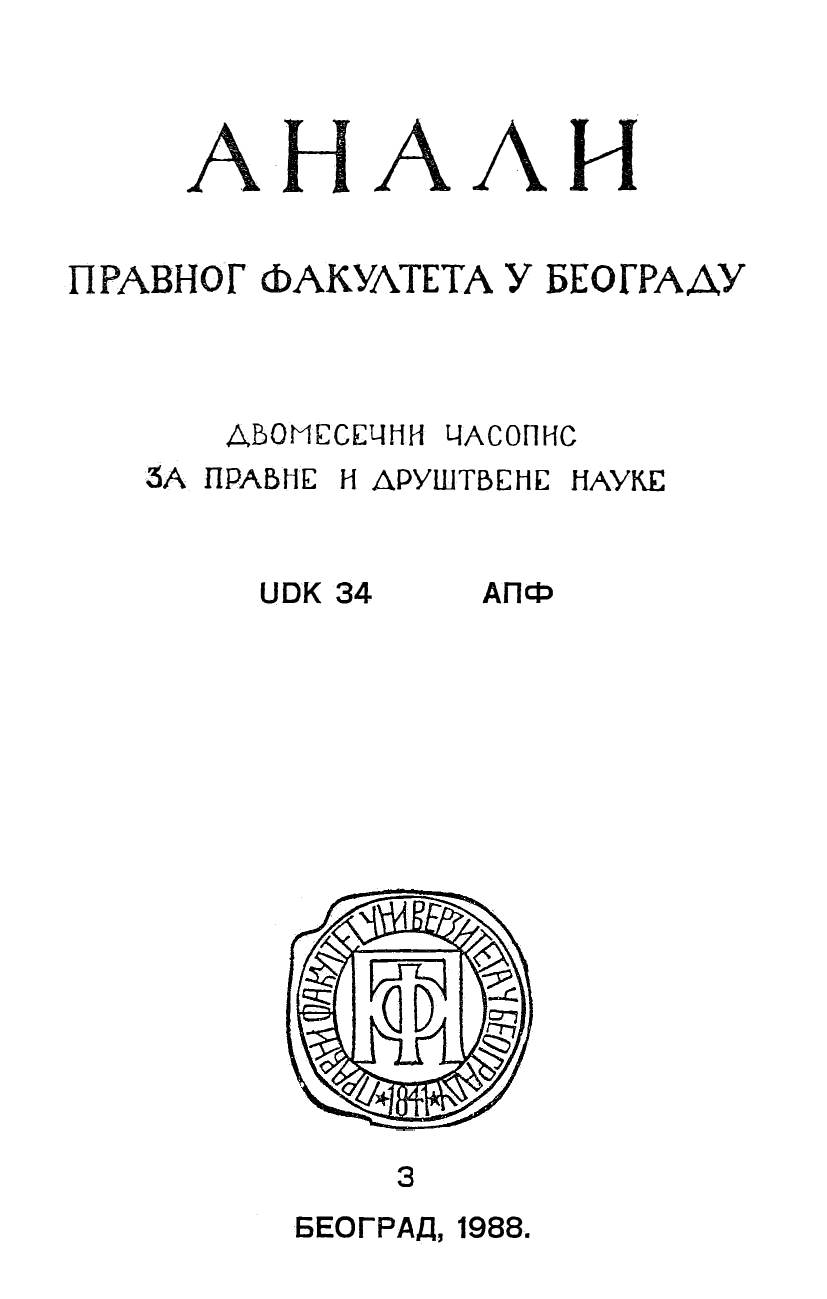СМРТНА КАЗНА ЗА УБИСТВО У АНТИЧКОЈ АТИНИ
DEATH PANALTУ FOR MURDER IN ANCIENT ATHENS
Author(s): Gerhard ThürSubject(s): History, Law, Constitution, Jurisprudence, Ancient World
Published by: Правни факултет Универзитета у Београду
Summary/Abstract: The author considers in the present article the question of time of introducing in ancient Athens the death penalty for murder. He re-examines former conception based on Plutarch’s account that Dracon had prescribed death penalty for all delicts. The starting point is a fragment of Deacon's law on homicide republished in 409—8 (IG I3, 104). He reviews different views concerning the location of the famous „murder paragraph” in the law and exposes dilemma about its contents — standрoints of Wolff, Ruschenbusch, Norr, Gagarin. They all think that Dracon’s laws did not prescribe death penalty for murder to be executed by state authorities, but that it was introduced some time after Solon. Instead, there existed private vengeance practice at the time. Sources are silent about such dramatic transition from private to state punishment. It gives ground to believe that the introduction of death penalty was performed quietly. The analysis of different meanings in IG I3 104, Dem. 23, 22 and Arist. AP 57 of the term „dikazein” is related to an information supplied by orator Lycurgus (para. 122) about the role of basileus, making clear that „dikazein” may also be an order to perform the execution. Accordingly, he reconstructs the text of the law: in Dracon’s time death penalty for murder was not yet constituted, but the state execution was prescribed for a murderer who has come back to Athens from exile. Just one step was necessary to pass from the execution of murderer returned from exile to state execution of a condemned murderer. This was probably done along with other reforms by Solon: he had combined the imposing of condemnatory sentence by a voting body, with an execution order issued by the magistrate. So, he introduced, at least for murderers who were present until the very end of the trial, the right of state authorities to punish a number of offences formerly governed by families. Such a change was hardly noticed. This is why Solon, who probably had introduced death penalty in a modern sense of the term for premeditated murderer, was considered in history as milder statesman, while Dracon, who had tolerated even voluntary composition instead of exile, was pronounced fabulously severe already during the Antiquity.
Journal: Анали Правног факултета у Београду
- Issue Year: 36/1988
- Issue No: 3
- Page Range: 213-223
- Page Count: 11
- Language: Serbian

